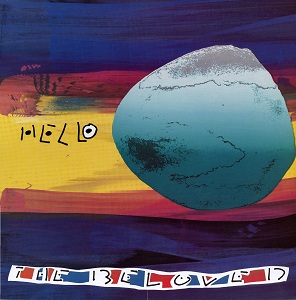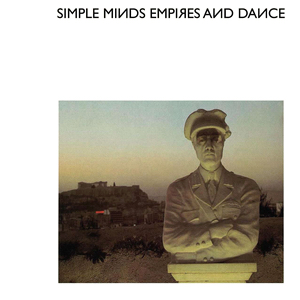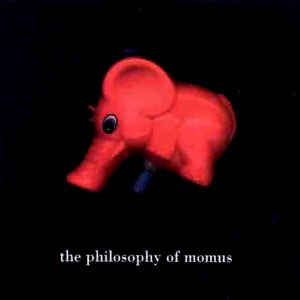
Bishōnen is a Japanese term literally meaning "beautiful youth (boy)" and describes an aesthetic that can be found in disparate areas in East Asia: a young man of androgynous beauty. This word originated from the Tang dynasty poem Eight Immortals of the Wine Cup by Du Fu. It has always shown the strongest manifestation in Japanese pop culture, gaining in popularity due to the androgynous glam rock bands of the 1970s, but it has roots in ancient Japanese literature, the androsocial and androerotic ideals of the medieval Chinese imperial court and intellectuals, and Indian aesthetic concepts carried over from Hinduism, imported with Buddhism to China. Today, bishōnen are very popular among girls and women in Japan. Reasons for this social phenomenon may include the unique male and female social relationships found within the genre. Some have theorized that bishōnen provide a non-traditional outlet for gender relations. Moreover, it breaks down stereotypes surrounding feminine male characters. These are often depicted with very strong martial arts abilities, sports talent, high intelligence, dandy fashion, or comedic flair, traits that are usually assigned to the hero/protagonist role.

Creation Records Ltd. was a British independent record label founded in 1983 by Alan McGee, Dick Green, and Joe Foster. Its name came from the 1960s band The Creation, whom McGee greatly admired. The label ceased operations in 1999, although it was revived at one point in 2011 for the release of the compilation album Upside Down.

Nicholas John Currie, more popularly known under the artist name Momus, is a Scottish musician and writer.

Screamadelica is the third studio album by Scottish rock band Primal Scream. It was first released on 23 September 1991 in the United Kingdom by Creation Records and on 8 October 1991 in the United States by Sire Records. The album marked a significant departure from the band's early indie rock sound, drawing inspiration from the blossoming house music scene and associated drugs such as LSD and MDMA. Much of the album's production was handled by acid house DJ Andrew Weatherall and engineer Hugo Nicolson, who remixed original recordings made by the band into dance-oriented tracks.

Give Out but Don't Give Up is the fourth studio album by Scottish rock band Primal Scream. It was released on 28 March 1994 in the United Kingdom by Creation Records and in the United States by Sire Records. It peaked at number 2 on the UK Albums Chart. Musically, it marked a massive departure from the psychedelic sound of their previous studio album Screamadelica (1991) into one influenced by classic rock and blues music. Its cover photo is a cropped version of Troubled Waters by American photographer William Eggleston. Eggleston included the album in his 2017 Pitchfork list of "the Music That Made Him a Photography Legend."

"Hello" is a song by British group the Beloved, released as the second single from their debut album, Happiness (1990). Peaking at Number 19 in the UK charts on 17 February 1990, it was band's highest-charting single until "Sweet Harmony" reached number eight in 1993.

"Play Dead" is a song by Icelandic singer-songwriter Björk, released by the labels Island and Mother as the only single from the soundtrack of the 1993 crime drama The Young Americans, starring Harvey Keitel. The song was not included in the first edition of Björk's debut album, Debut (1993), but was later included as a bonus track, and the album was re-issued in November 1993. It was written by Jah Wobble, Björk, and David Arnold, produced by Cannon and Arnold, and received additional production and mixing by Tim Simenon.

The Lion and the Cobra is the debut album by Irish singer Sinéad O'Connor, released on 5 October 1987 by Ensign and Chrysalis Records.

"Ship of Fools" is a song by English synth-pop duo Erasure, released in February 1988 by Mute as the lead single from their third studio album, The Innocents (1988). The song was written by Vince Clarke and Andy Bell, and produced by Stephen Hague and Dave Jacob. It peaked at number six on the UK Singles Chart, and was the duo's eighth single overall and their fourth UK Top 10 single. The music video for the song was directed by Phillip Vile.

Empires and Dance is the third studio album by the Scottish new wave band Simple Minds. It was released on 12 September 1980 through Arista Records.

"Open Letter (To a Landlord)" is a song by American rock band Living Colour. A power ballad, it was released as the fourth single from their 1988 debut album, Vivid. The song reached No. 82 on the Billboard Hot 100.

The discography of My Bloody Valentine, an Irish-English alternative rock band formed in Dublin, Ireland, consists of three studio albums, two mini albums, one live album, two compilation albums, five extended plays, twelve singles and six music videos.

"Elisabeth's Eyes" is a song by the English pop musician Nik Kershaw, released in 1989 as the second and final single from his fourth studio album, The Works (1989). It was written by Kershaw, and produced by Kershaw and Julian Mendelsohn.

The Poison Boyfriend is the second album by Scottish musician Momus, released in 1987 on Creation Records. After the critical success of Momus' Biblical-themed and stripped down debut album Circus Maximus (1986), Momus left él Records and signed with Creation Records after he bonded with record label boss Alan McGee. His first release for the label, The Poison Boyfriend is a song cycle that features a full band; its first half features acoustic-based singer-songwriter songs with cabaret pop influences, while the more upbeat second half features synthesisers and drum machines.

Hippopotamomus is the fifth studio album by British musician Momus, released in 1991 through Creation Records.

Don't Stop the Night is the fourth studio album by Scottish musician Momus. It was released in 1989 through Creation Records internationally, and in Germany on Rough Trade. The album featured Momus' highest-charting single to date, "The Hairstyle of the Devil", which reached No. 94 on the UK Singles Chart for the week of 30 April 1989.

Voyager is the seventh album by Scottish musician Momus, released in 1992 by Creation Records. Voyager marked Momus' increased popularity in Japan, where he was signed to Nippon Columbia and began to collaborate with a number of notable Shibuya-kei artists.

The Philosophy of Momus is the ninth studio album by Scottish musician Momus. It was released on 1 April 1995 through Nippon Columbia in Japan, and Cherry Red Records in the United Kingdom.

Timelord is the eighth studio album by Scottish musician Momus. It was released in October 1993 through Creation Records in Europe and Nippon Columbia in Japan.

"Runaway" is a song by British pop band Thompson Twins, released in 1982 as the second and final single from their second studio album Set. The song was written by Tom Bailey and produced by Steve Lillywhite.




















